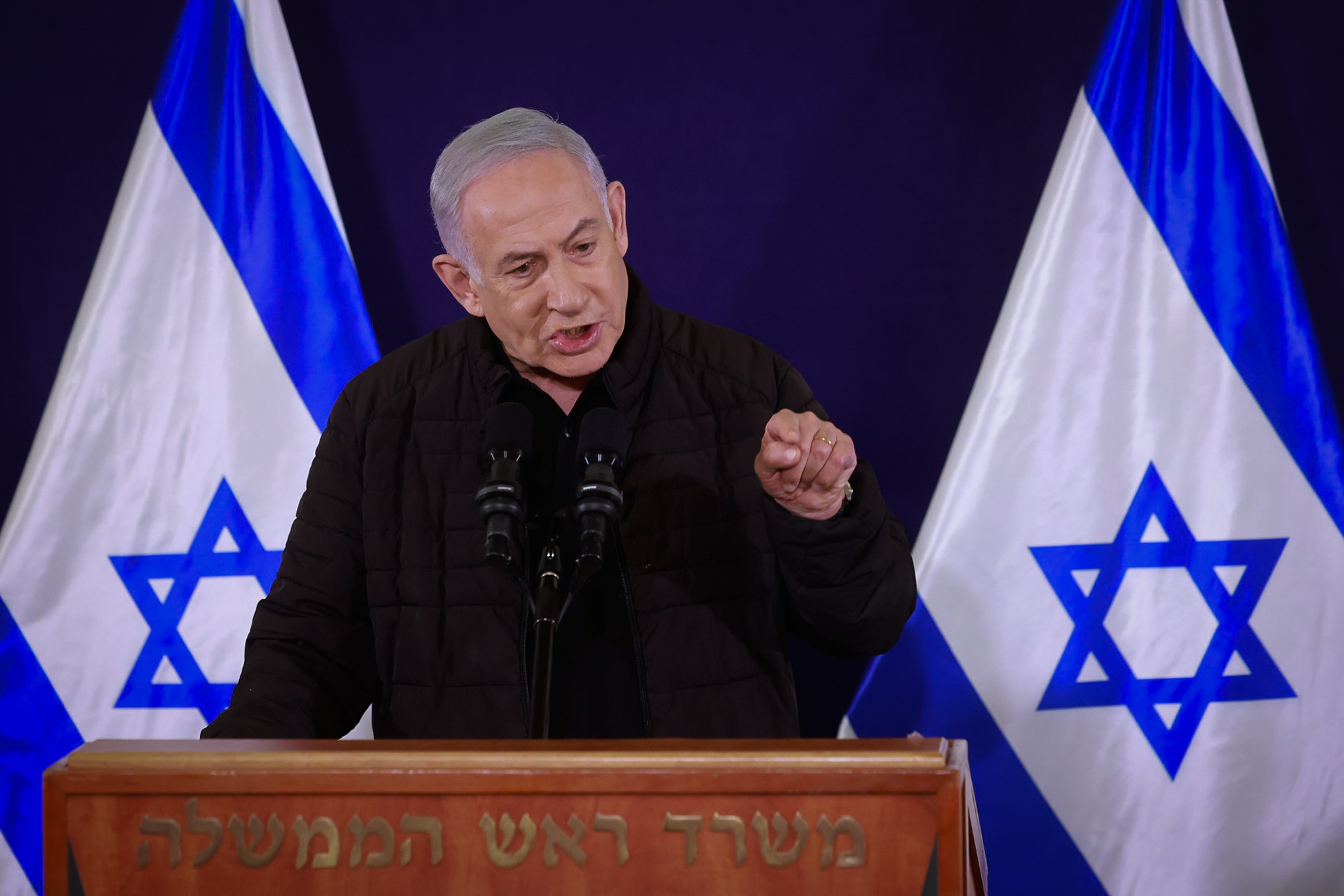Israeli Prime Minister Benjamin Netanyahu’s recent comments on the U.S. response to terror attacks and the ongoing conflict in Gaza have stirred controversy and highlighted the divergent approaches of the U.S. and Israeli governments in addressing the situation.
Netanyahu’s assertion that the U.S. would be “doing a hell of a lot more” in response to a terror attack reflects his perspective on Israel’s actions in Gaza and the necessity, in his view, of robust measures to address security threats.
He framed Israel’s actions as necessary in the face of terrorism and questioned what actions the U.S. would take if faced with similar circumstances.

Netanyahu (Credits: The Times of Israel)
The significant civilian death toll in Gaza, nearing 30,000, has raised concerns internationally, with questions about the proportionality and impact of Israel’s military operations. Netanyahu emphasized Israel’s goals of ensuring security and defeating Hamas, citing the need for “total victory” to achieve peace.
However, Netanyahu’s stance contrasts with the approach advocated by the Biden administration, which has called for Palestinian governance in Gaza and a two-state solution as a long-term plan for resolving the conflict.
The administration has also expressed opposition to Israel’s settlement expansion plans in the West Bank, signaling a return to previous U.S. policy on the issue.
The Biden administration’s criticism of Israel’s settlement expansion plans underscores ongoing tensions between the two allies regarding key aspects of Israeli policy.
Secretary of State Antony Blinken reiterated the U.S.’s opposition to settlement expansion, emphasizing its counterproductive nature in achieving a lasting peace.
The differing positions of the U.S. and Israeli governments reflect broader disagreements and complexities in the Israeli-Palestinian conflict, with divergent perspectives on security, territorial claims, and the path to peace.
As the situation continues to evolve, navigating these differences will remain a significant challenge for both countries and the broader international community.























